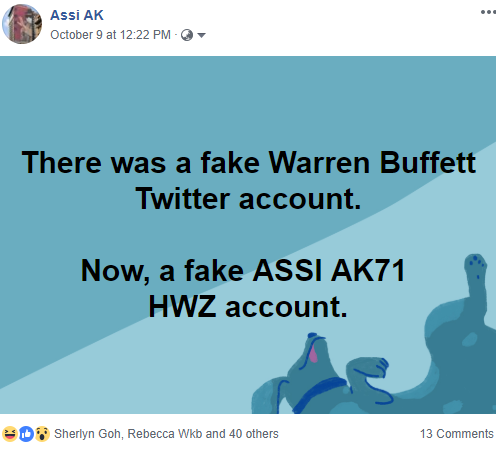This is another contribution from one of ASSI's most prolific guest bloggers, Matthew Seah:
Recently I got to know of a likely fraudulent company selling US distressed properties in a declining city.
Thought I could clear some air about how fraudulent investment operations work.
After doing some quick search, I found an easy to understand video from the Financial Industry Regulatory Authority, Inc.
How to Spot Investment Fraud?
.
Here are some other warnings signs which I think are also easily recognisable:
Promises of high, guaranteed investment returns with little or no risk.
“If it sounds too good to be true, it probably is.” Many fraudsters claim 12 – 24% or even higher returns.
Unless their names are Warren Buffett, Peter Lynch, or George Soros, most investments can’t generate 12% returns consistently.
Furthermore, all investments carry some degree of risk, so a 12% guaranteed return sounds amusing to me.
Unlicensed or “exempt” sellers or dealers.
If the investment company is unlicensed or “exempted” from registration, chances are they are not regulated by MAS.
MAS has an Investor Alert List for anyone with internet access to do a quick check on the spot.
Secretive or complex strategies.
Oftentimes, fraudulent investments comes with complex and secretive strategies.
Ask them how the investment generates its returns and to provide supporting documentation.
Sometimes, my friends who are already in such schemes would answer
“I cannot tell you because it is a trade secret/proprietary/non-disclosure”
or
“Others might copy our business model if I tell you.”
With no transparency, it is highly doubtful that the investment would be legitimate, don’t you think?
Scams come in many shapes and sizes.
If you do not know if it is a scam, but are in doubt, best to stay away. =D
Related posts:
1. Advice from a fraudster.
2. Thought process of a scam victim.
3. (See the 3rd point I made at a conference).
4. Invest in real estate for high returns.























